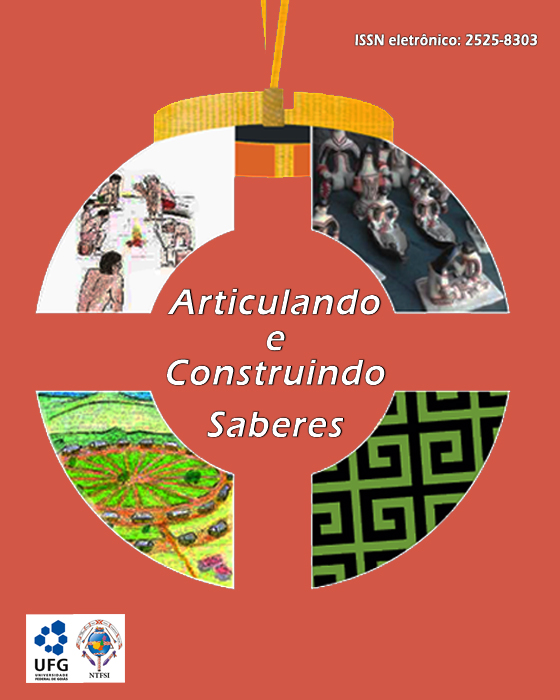Reflexões sobre a proximidade entre território e cidade e as tecnologias na manutenção da língua Akwe-Xerente
DOI:
https://doi.org/10.5216/racs.v5i.63754Palabras clave:
Língua Akwe, Vitalidade linguística, Proximidade urbana, Novas tecnologiasResumen
Este estudo traz os resultados de pesquisa realizada na aldeia Funil – em um dos Territórios do povo Akwe-Xerente –, localizada a 12 quilômetros de Tocantínia, estado do Tocantins. A hipótese inicial da pesquisa que, por sua vez, povoa o imaginário coletivo da população Akwe-Xerente, era a de que a língua está ameaçada em razão da proximidade com a cidade e do uso intensivo de novas tecnologias. No entanto, a hipótese não se confirmou. Os/as estudantes puderam concluir que um maior contato com a cidade e com as novas tecnologias trazidas pelas relações com os/as ktâwanõ não são, necessariamente, uma ameaça à vitalidade da língua Akwe.
Descargas
Descargas
Publicado
Cómo citar
Número
Sección
Licencia
Los autores/as autorizan a Articulando e Construindo Saberes a publicar un artículo, si es aceptado, firmando su contribución como original y que no ha sido enviada a otra revista para su publicación. En caso de aceptación y publicación, los artículos de Articulando e Construindo Saberes poseen una licencia Creative Comons CC-BY.



